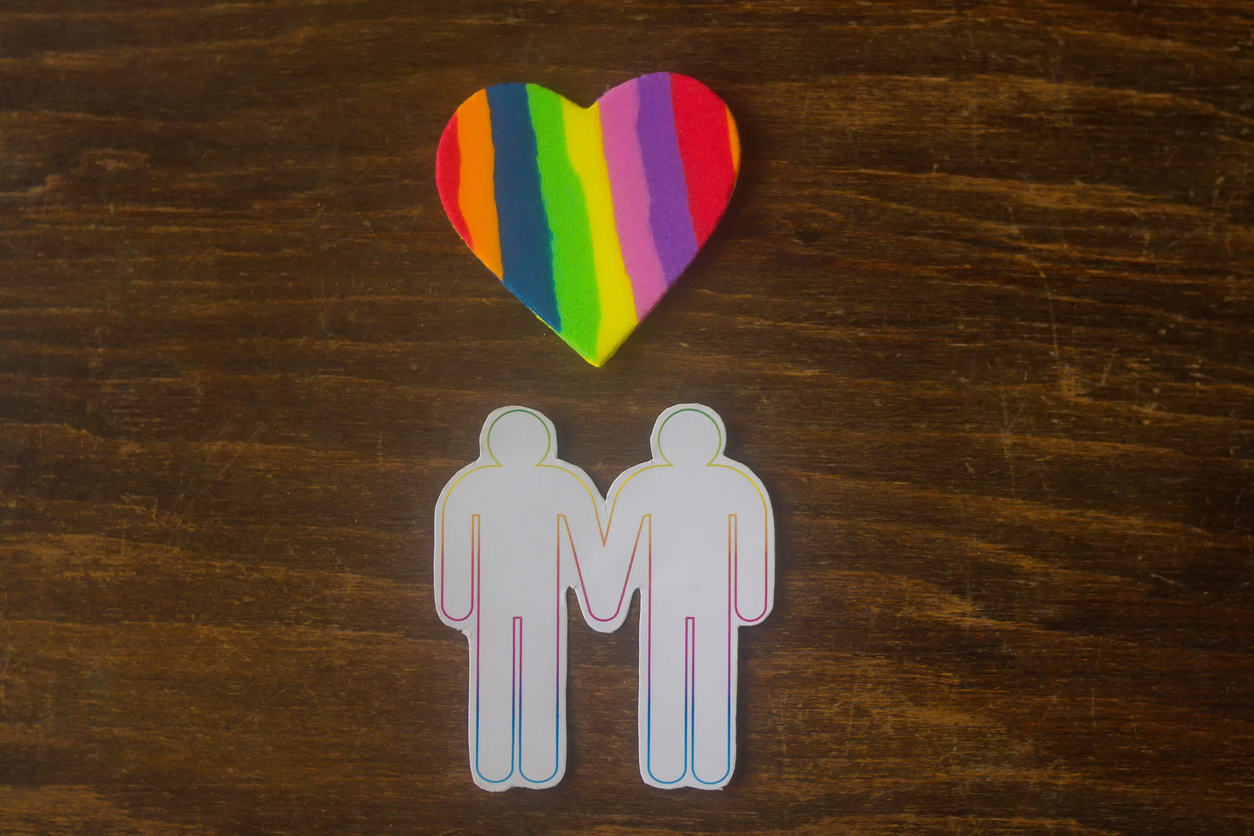Healing is easier when we feel safe, and seen. HopeHealth’s virtual LGBTQ+ Grief Support Group offers an inclusive, compassionate community for people who identify as LGBTQ+ and are coping with a loss.
If that’s you, and you live in HopeHealth’s service area, we hope you’ll drop in.
Co-facilitators Alex Zima and Bob Iovino-Zuniga share what you’ll find here.
1. Belonging: In our LGBTQ+ grief group, you’re seen and safe
Grief can be lonely. The people around you may not know what to say or do. They may not understand how profoundly a loss impacts your life.
That’s true for everyone. But for the LGBTQ+ community, grief is often layered with additional barriers and stressors, too. You’re more likely to be coping with past trauma from social prejudice. You may face stigma and discrimination in everyday life. The list goes on.
The LGBTQ+ Grief Support Group offers a safe, understanding place to turn for support — and belonging.
“Our participants say they get hopeful and excited when they see a grief support group devoted specifically for this community,” says Bob. “They know they’re going to be interacting with people who have also been marginalized, who have shared similar problems.”
“Within the LGBTQ+ community, there’s a lot of resilience in creating and finding these safe spaces,” says Alex. “This group builds on those strengths.”
> Related: LGBTQ grief support: Journey through love, loss, and renewed hope
2. Understanding: Your loss matters
When your loss isn’t acknowledged or understood by others, it’s particularly hard to work through. Unfortunately, this can be a common experience within the LGBTQ+ community.
“The term ‘disenfranchised grief’ comes up a lot around LGBTQ+ folks,” says Alex. “For whatever reasons, others may not see their grief as valid, or they may not see it at all — it may be invisible.”
Maybe you’re not out with certain people in your life, and don’t know how to talk about the death of a loved one without talking about your identity. Maybe you’ve lost a parent or sibling with whom you had a strained relationship, and were left out of memorial services. Maybe your relationship with your partner or spouse wasn’t recognized by one or both of your families.
“I’ve seen families come in, especially if they didn’t approve of the relationship, and take over medical decisions, funeral arrangements, all of it,” says Bob. “The person is left not only with the terrible grief and loss of their partner or spouse, but many times the loss of possessions they shared, a home they shared, pets. One person doesn’t even know where their spouse is buried. Grief upon grief upon grief.”
In the LGBTQ+ Grief Support Group, participants can often relate to these uniquely painful experiences. Even if they haven’t experienced it themselves, they recognize each other’s relationships, and the depth of their losses.
Some of the phrases that come up most are, “I see you,” “Thank you for sharing,” and “It helped me to hear your experience.”
“Those are very powerful affirming statements,” says Alex.
> Related: 5 signs our Young Adult Grief Support Group may be right for you
3. Healing: In our LGBTQ+ grief group, you’re surrounded by support
In the flow of our everyday work, family, and social lives, we’re not given a lot of space to grieve. But creating that space is crucial. Otherwise, unexplored grief can lead to chronic stress, anxiety and depression.
“Feeling your grief is essential for healing,” says Alex.
The trick is to turn toward the experience, rather than away from it. That’s where support groups and individual counseling come in.
“The LGBTQ+ Grief Support Group allows for a pause so you can feel your feelings, in a way that’s safe and supportive,” says Alex. “People are willing to hold space for each other, and let you finish your thoughts — that sense of just sharing your own story without judgment.”
“In this group, people realize they’re not alone,” says Bob. “They realize others are going through the same pain, and hearing other ways of getting through it. They’re surrounded by individuals who have great sympathy and empathy for them, even if they’re very different from each other. I’ve never seen anything like it in my life.”

